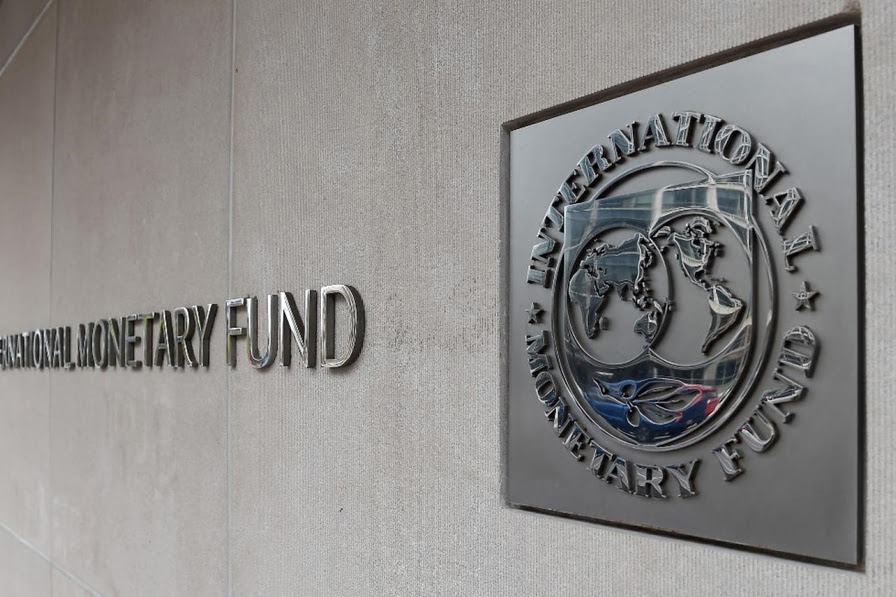

Washington, DC:A staff team from the International Monetary Fund (IMF), led by Ron van Rooden, visited Amman during April 29–May 9, 2024, to conduct the first review under the arrangement under the IMF’sExtended Fund Facility(EFF), which was approved by the IMF’s Executive Board on January 10, 2024 (Press Release).
At the conclusion of the mission, Mr. van Rooden issued the following statement:
"We are pleased to announce that the IMF team and the Jordanian authorities reached a staff-level agreement on the first review of the authorities’ economic reform program supported by the EFF arrangement approved in January of this year. The new program is off to a strong start, despite a challenging external environment. All quantitative performance criteria and structural benchmarks for the first review were met and steady progress is being made toward achieving the program’s overall objectives, including good progress on meeting benchmarks for the next review. The agreement is subject to approval by the IMF’s management and the Executive Board. The completion of this review will make another SDR 97.784 million (about US$129 million) available, out of the previously approved program size of SDR 926.370 million (about US$1.2 billion).
"Jordan’s economic performance has continued to be strong, building on the success of the previous program and reflecting sound macro-economic policies. Jordan’s economy is proving to be resilient, with economic growth having reached 2.6 percent in 2023, despite the slowdown in activity in the last quarter of the year following the start of the Israel–Gaza war. The current account deficit narrowed considerably, to less than 4 percent of GDP in 2023, and gross usable international reserves increased to over US$17 billion. As the Central Bank of Jordan (CBJ) raised its policy rates in tandem with the US Federal Reserve, reflecting its firm commitment to monetary stability, inflation declined to 1.6 percent (year-on-year) in December 2023. Jordan’s banking system, meanwhile, remains liquid, profitable, and well-capitalized.
"Importantly, by continuing with a gradual fiscal consolidation to place public debt on a downward path, and despite the adverse impact on government revenues from the spillovers from the war on Gaza and the disruptions to trade, the central government’s primary deficit (excluding grants and transfers to the utility companies) was reduced to 2.7 percent of GDP in 2023, down from 3.6 percent of GDP in 2022. Similarly, by taking measures to contain the operational losses of the utility companies, the combined public sector primary deficit was reduced to 4.5 percent of GDP in 2023, from 4.8 percent of GDP in 2022. Together with continued surpluses in the social security system, this resulted in an overall general government primary surplus (including grants) of 0.5 percent of GDP, and in containing public debt at 89.5 percent of GDP by end-2023.
"Uncertainty is high, as the war in Gaza and regional tensions continue. The continuation of the war and the trade route disruptions in the Red Sea are affecting Jordan’s economy, notably sentiment, trade, and tourism. However, barring a significant regional escalation, the Jordanian economy should continue to be able to navigate these headwinds well. Growth is projected at 2.4 percent this year, and the current account deficit is expected to widen to about 5 percent of GDP. Supported by continued reform implementation, growth is expected to rebound in 2025, to almost 3 percent, and the current account deficit to narrow, contingent upon the war ending and its impact fading.
"Importantly, the authorities remain firmly committed to continue with sound macro-economic policies to maintain stability, and to advance structural reforms to further strengthen the resilience of Jordan’s economy and improve people’s living standards, as envisaged also in their Economic Modernization Vision. The CBJ’s monetary policy will continue to be underpinned by its firm commitment to the exchange rate peg to the US dollar and to maintain low inflation. Inflation is projected to remain limited to about 2 percent in 2024. The CBJ stands ready to undertake policy adjustments as necessary to credibly safeguard monetary and financial stability.
"Moreover, the authorities are continuing with the gradual and equitable fiscal consolidation and improving the financial sustainability of public utilities, aiming to reduce public debt to below 80 percent of GDP by 2028, while ensuring sufficient support for vulnerable households and creating room for higher public investment. The authorities are on track to reduce this year’s central government primary deficit (excluding grants and transfers to the utility companies) to 2.1percent of GDP. Moreover, as reform measures to improve the financial position of the utility companies are starting to yield results, the combined public sector primary deficit is projected to be reduced to 4.0 percent of GDP, thus achieving an overall general government primary surplus (including grants) of 1.3 percent of GDP and reducing public debt to just over 89 percent of GDP by end-2024.
"The staff team is grateful to the authorities for the candid and constructive discussions. The team met with Prime Minister Khasawneh, Deputy Prime Minister Shraideh, Minister of Finance Al-Ississ, Minister of Planning and International Cooperation Toukan, Governor of the Central Bank of Jordan Al-Sharkas; and other Ministers and senior government and CBJ officials.”